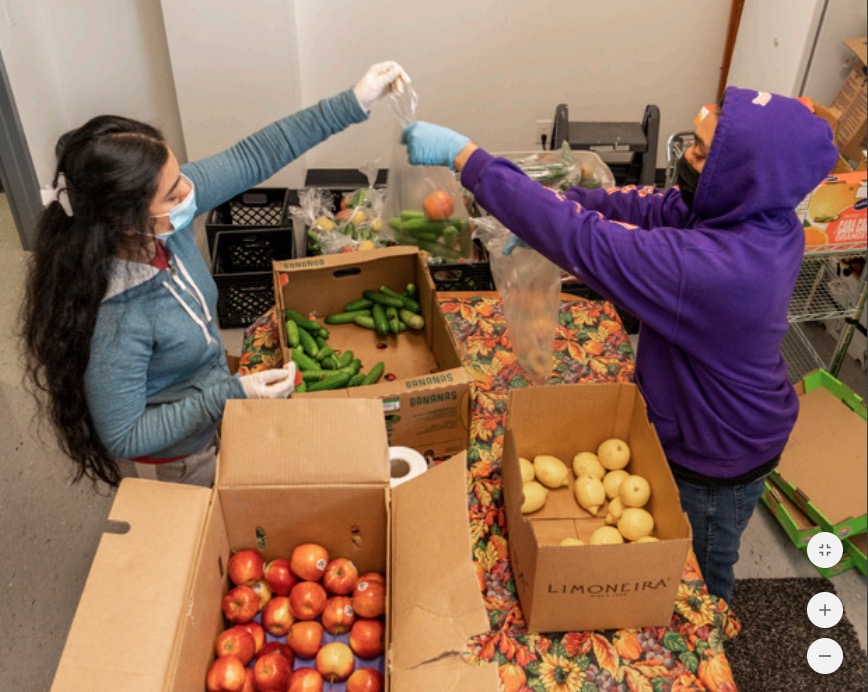Driving a clear connection between food insecurity and unaffordable housing, the 2020 Who’s Hungry report details the impact of COVID-19 on food bank users.
While managing debt was already a concern for many Canadian households, with reports that over half of Canadians are living paycheque to paycheque, the COVID-19 pandemic pushed many more households to a financial breaking point. The upheaval of entire industries such as tourism and food services has resulted in massive job losses. Although financial assistance programs were established swiftly and efficiently, in places where the cost of living, and lodging is high, such as Toronto, $2,000 a month is not nearly enough to meet basic needs. Also, many food bank clients were already living in deep poverty exacerbated by the pandemic.
For the last two decades, the Daily Bread Food Bank and North York Harvest have published the Who’s Hungry report, profiling experiences of poverty and food insecurity among food bank clients.
Although this year is atypical, the impacts of COVID-19 were immediately felt: the report reveals an increase of 58% in food bank visits in July/August. Up to 76% of new clients reported starting to use food banks post COVID-19, after a job loss, while 38% had the added burden of worrying about facing eviction in the upcoming months.

Food vs. rent
Driving a clear connection between food insecurity and unaffordable housing, rent was one of the top three reasons respondents cited for skipped meals, with 56% saying they could not afford both food and lodging.
“This report demonstrates the need for robust public polices to ensure a sufficient income floor so that all people can afford both food and adequate housing,” stress Daily Bread Food Bank CEO Neil Hetherington and North York Harvest executive director Ryan Noble in the foreword of the report.
Of the food bank users surveyed, 73% said they spend 30% or more of their income on housing. For respondents who rent in the private market (i.e., who do not live in subsidized housing), that proportion climbs to 96%. Among those who aren’t in subsidized housing, 83% are at high-risk of homelessness and require immediate support.
But lack of affordability isn’t the only problem. Respondents report living in unsuitable, overcrowded and pest-infected housing, with one-in-five lacking space for cooking, food storage and appliances—such as a stove, fridge, and freezer—further affecting their food security.
The report also notes that food insecurity is disproportionately high among Black households (28.9%) and affects 28.2% of Indigenous ones.
At a crossroads
“As we look to recovery, we can listen to people experiencing poverty who have been, and continue to be, calling for a fairer society where everyone can thrive,” write Hetherington and Noble.
“We can make employment a pathway out of poverty. We can achieve affordable housing for all. We can eliminate deep poverty. We are at a crossroads and have the unique opportunity to create just and thriving communities where everyone’s rights to food and housing are realized.”
Thousands of households are walking a very fine line between just barely surviving and falling into the deepest levels of poverty. The COVID-19 pandemic serves as a reminder that we are all an integral part of a social fabric, this interconnectedness means that housing is just one piece of a bigger whole, and when things fall apart, many more lives begin to unravel.
The full report can be accessed here.



